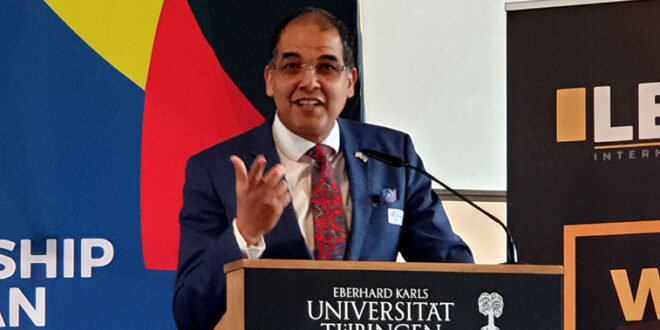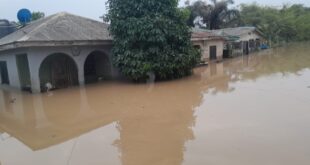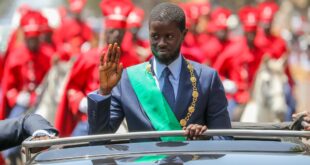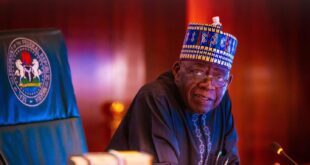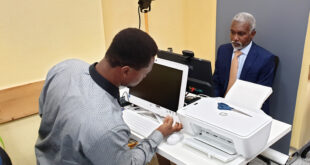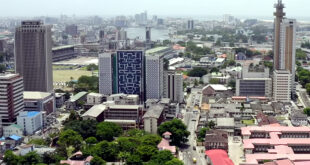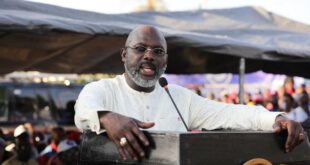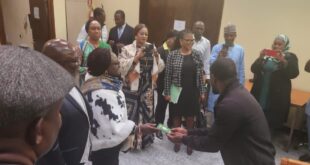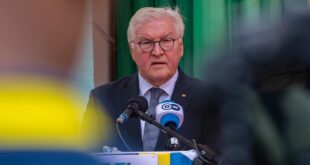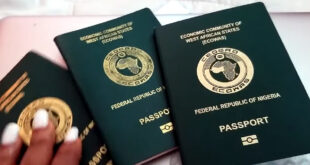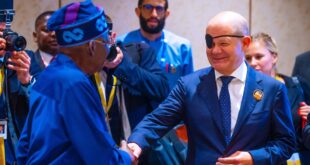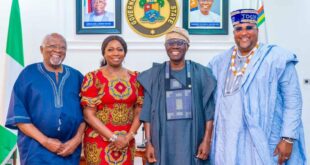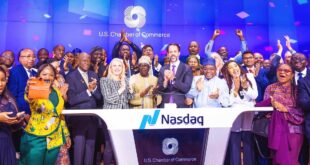Rwanda’s envoy to Germany has described international critics of his government’s human rights records as “hypocrites”.
“Where were these people when the genocide was perpetrated?” Ambassador Igor Cesar asked.
“It took Rwanda to end the genocide. And that’s a human rights achievement,” he told his audience at the 2019 Global Partnership for Africa’s Development (G-PAD) Forum, which took place on 22-23 November in the German city of Tubingen.
The ambassador made the comments while replying to the question of a member of the audience, including academics, German politicians and development experts, and diaspora Africans, on the human rights records of the government of President Paul Kagame.
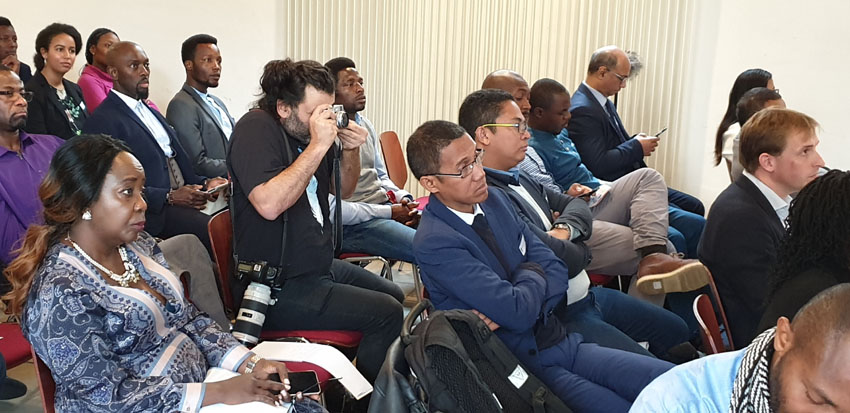
Rwanda has been accused in the West of stifling free expression and limiting the space for political participation. Several opposition politicians have been reported missing this year, with the country’s secret service suspected of having abducted or murdered them.
Ambassador Cesar said bringing Rwanda from the state it was 25 years ago after the genocide to where it’s today was a human rights achievement. “Nobody cares more about the human rights of Rwandans than the Rwandan government,” he assured.
The diplomat also took a swipe at the Western organisations rating countries on democracy and human rights. “What is the definition of democracy and human rights?” he asked.
“We took 1 million people out of poverty. We care about human rights. The problem we have is the way human rights are defined.”
Responding to another question on President Kagame’s long stay in office, the ambassador said: “We went to vote, and over 90% of population turned out, but that is a problem in the West”.
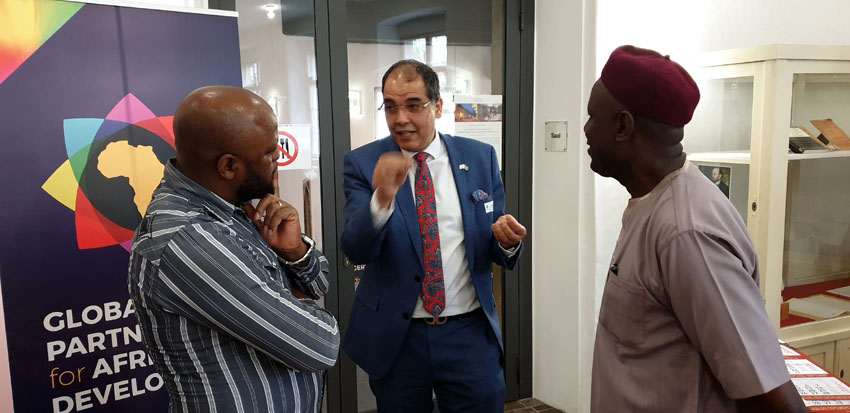
“Kagame doesn’t want to be there but he was prevailed upon by the people to remain,” he explained. “We live in a region that is unsafe, that is faced with many challenges which explains why the majority of Rwandans opted to main the current leadership.”
Ambassador Cesar explained that Rwandans themselves decided to amend the constitution, paving the way for Kagame to contest at the country’s last election in 2017.
“The world should stop being sceptical about Rwanda,” he appealed.
Earlier, Ambassador Cesar had delivered a keynote speech on the Rwanda success story. He took his audience down the memory lane to the aftermath of the genocide 25 years ago, when up to 1 million people, mostly Tutsis but also moderate Hutus, were killed in an orgy of genocidal violence that lasted more than 100 days.
“Our country was devastated by the genocide. Our society was separated, our economy was disrupted, state institutions collapsed..; we were left with a country in shambles,” he recalled. “That was the makeup of Rwanda 25 years ago.”
The envoy then explained how the government went about putting the pieces together. First, the leadership spent the first four years restoring peace and security in the country without which no development was possible.
The second step taken by the Rwandan government was to consult its people both at home and in the diaspora on a new constitution and development agenda.
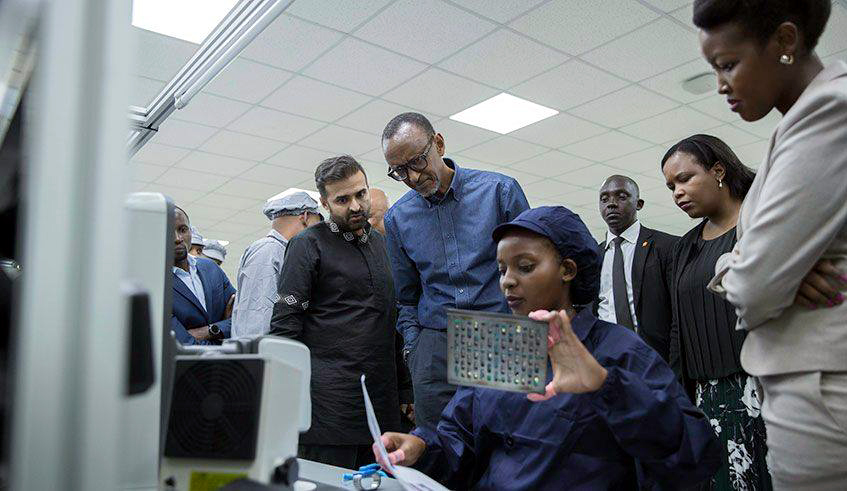
At the end of the process, Rwanda adopted a new constitution and initiated a development agenda, which prioritises education and health care while putting in place a policy framework for sustainable economic growth.
Ambassador Cesar then gave the picture of Rwanda of today to show how far the country has come.
Rwanda has one of the world’s fastest-growing economies, driven by economic and structural reforms. Growth averaged 7.5% annually in the decade to 2018.
“Best performer in ease of doing business in Africa in 2018. In competitiveness, Rwanda was number 2 in 2017. As a conferencing hub, the country is rated second in Africa etc,” he said, listing the milestone achievements of his country in recent years.
“In the transparency index, Rwanda is number 1 in Africa and 9 globally and gender parity has been achieved in political participation at leadership level,” the ambassador added, citing further the achievements of the Kagame administration.
The government has even higher goals through its National Strategy for Transformation and Vision 2050 strategy: to reach middle-income status in 15 years.
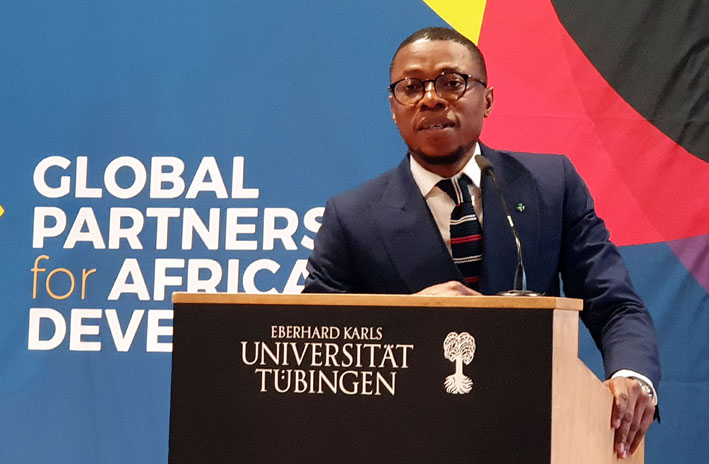
“So the lesson is that, if Rwanda can do it others can do it as well in Africa,” Ambassador Cesar said.
The issue of human rights in Rwanda has been a controversial one. While the country has scored high in many development targets such as economic growth, job creation and improved education and health care for its citizens, opposition politicians say they have no free space to operate.
READ ALSO African diaspora challenged on African development at G-PAD Forum in Tübingen
President Kagame won his reelection for another seven-year term in August 2017 by a landslide of 99% of the votes cast. He’s been in office since April 2000 and could potentially be president until 2034. In fact, many analysts say that Kagame had been de facto leader since 1994, but had focused more on military, foreign affairs and the country’s security than day-to-day governance until he formally assumed the presidency in 2000.
Organised by Lead Africa International e.V., a global non-governmental organization dealing with development issues, G-PAD Forum promotes “shared knowledge of development policies that impact Africans and people of African descent and facilitate effective global partnerships towards achieving sustainable development” in Africa.
The 2019 G-PAD Forum, with the theme From Policy to Practice, aimed to create a greater awareness of the new German Africa Policy, launched in March 2019, and explore how the diaspora could participate actively in it for the good of Africa.
Femi Awoniyi
 THE AFRICAN COURIER. Reporting Africa and its Diaspora! The African Courier is an international magazine published in Germany to report on Africa and the Diaspora African experience. The first issue of the bimonthly magazine appeared on the newsstands on 15 February 1998. The African Courier is a communication forum for European-African political, economic and cultural exchanges, and a voice for Africa in Europe.
THE AFRICAN COURIER. Reporting Africa and its Diaspora! The African Courier is an international magazine published in Germany to report on Africa and the Diaspora African experience. The first issue of the bimonthly magazine appeared on the newsstands on 15 February 1998. The African Courier is a communication forum for European-African political, economic and cultural exchanges, and a voice for Africa in Europe.

